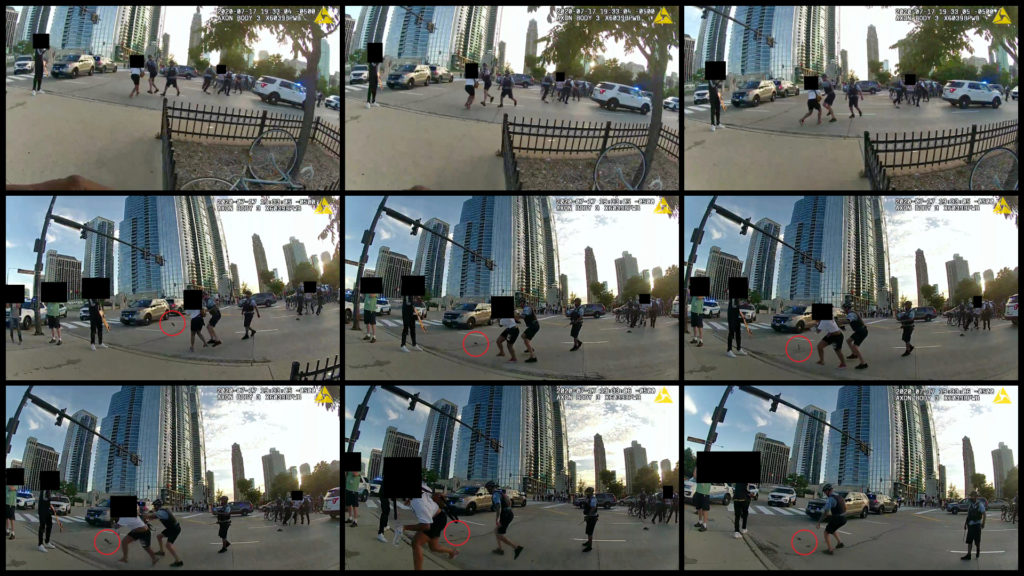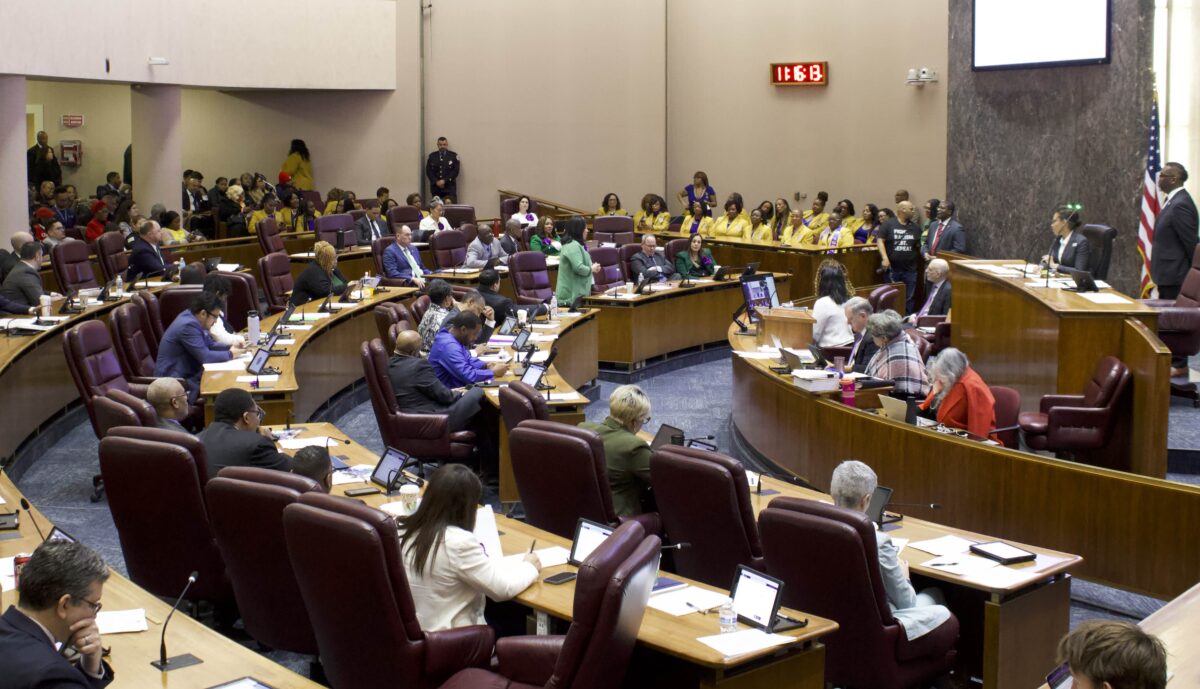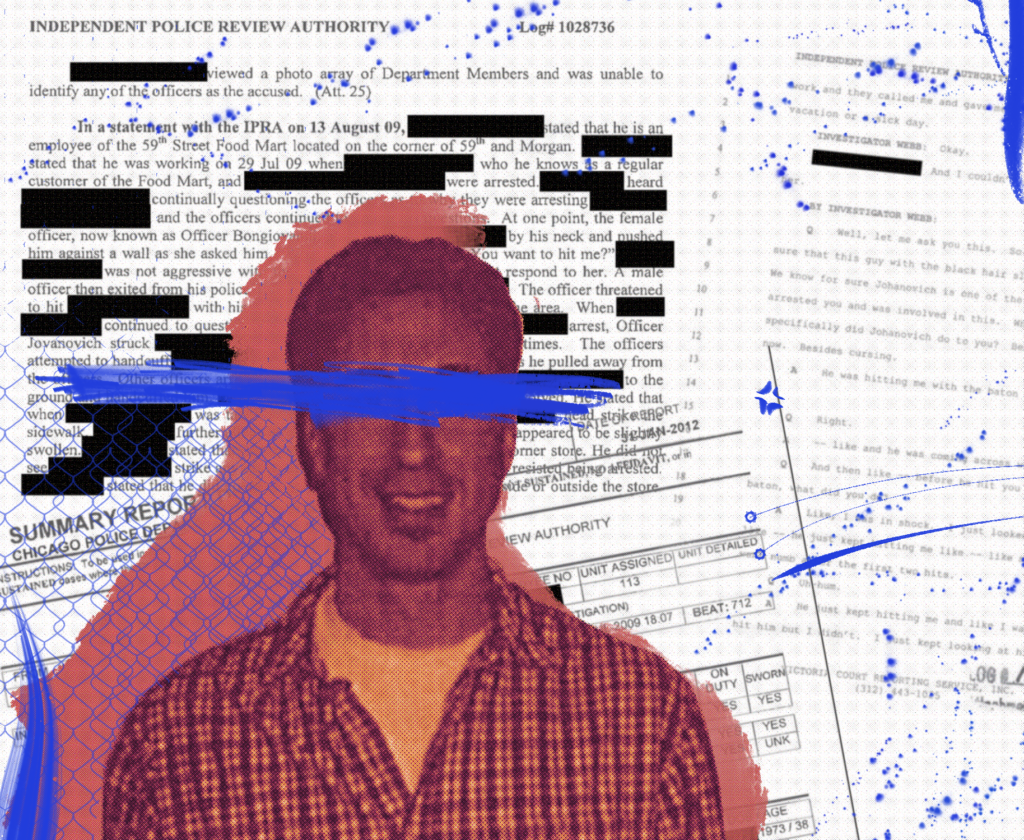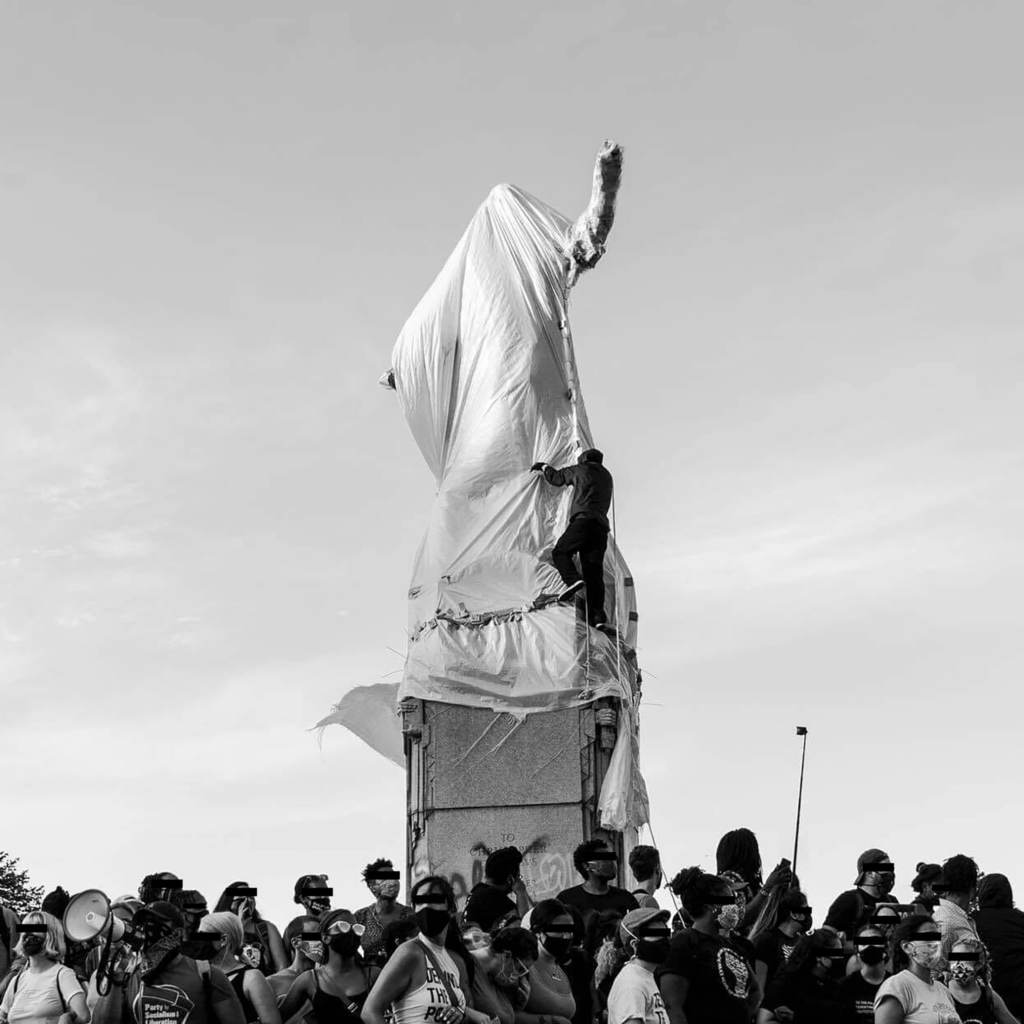A proposed ban on fur products that was ultimately voted down was the most contentious issue at a City Council meeting this week where members also approved nearly $3 million settlements for police misconduct and the appointment of Ivan Capifali as commissioner of the Department of Business Affairs and Consumer Protection (BACP).
Ald. Ray Lopez (15th Ward) sponsored the fur sale ban some 250 years after Chicago’s first non-Native settler, Jean Baptiste Point du Sable, established a fur-training post in the 1780s in what is now Streeterville. The proposed ban would make it illegal to “sell, offer for sale, trade, or otherwise distribute for monetary or non-monetary consideration a fur product” in Chicago.
The Black Caucus opposed the ban, noting it would negatively impact Black business owners and threaten the community’s long-held traditions. During the debate, Black Caucus chair Stephanie Coleman (16th Ward) spoke passionately in opposition to the ban.
“For Black women, furs are about embracing elegance in a world that has not been kind to us,” Coleman said, noting that Black women often pass furs down through the generations. “Let’s support policies that uplift businesses rather than shut them down. Let’s respect consumer choice rather than dictate personal decisions.”
Ald. Matt O’Shea, whose 19th Ward is home to two fur sellers, spoke against the ban as well, at one point singing the jingle of one such shop, Andriana Furs, to laughs from his colleagues.
Lopez told reporters after the meeting that fur sales are already declining, and said the ordinance was designed to help furriers “gravitate toward the next generation of products, which is alternate fur products…there’s a whole plethora of options out there.”
The measure failed, 19–26. Lopez said that several Council members whose votes he was counting on didn’t come through. “We saw a number of our yes [votes] walk out of the room” during the vote,” he told reporters. “We saw eight of our co-sponsors switch from being supportive to not.”
Alderpersons who co-sponsored it but voted against it included Alds. Jeanette Taylor (20th), Ronnie Mosley (21st), Bill Conway (34th), Carlos Ramirez-Rosa (35th), Gilbert Villegas (36th), Timmy Knudsen (43rd) Leni Manaa-Hoppenworth (48th). Ald. Rossana Rodriguez Sanchez (33rd) co-sponsored the ordinance but was not present for the vote.
In other business, the Council confirmed the appointment of Ivan Capifali as commissioner of the BACP and approved several police misconduct settlements. Capifali has been the BACP’s acting commissioner since June, when former commissioner Ken Meyer retired. Prior to that role, Capifali was the department’s first deputy commissioner.
Three of the settlements approved by the Council were to the families of two people killed in separate high-speed police chases and a third person who was injured by an officer who ran a red light. The largest settlement was of $1.5 million to the family of Ezell Ricky Island, a fifty-four-year-old father of nine who was the passenger in a car police chased through the West Side on February 5, 2020 after its driver cut off an unmarked police SUV. The car crashed at the end of the chase, killing Island and injuring its other occupants. A settlement of $1 million will go to the estate of Mignonne Robinson, who was killed that same month when a car being chased by police struck her. A $400,000 settlement was approved for Eyraechel Meiang, who was hit by then-police officer Charles Galvin in April 2020.
The department’s pursuit policy was reformed later that year. Supervisors are now required to weigh the “inherent danger” of a high-speed chase against the need to “immediately apprehend” fleeing drivers.
The smallest settlement approved yesterday was for one of the most high-profile misconduct cases in recent years. During a protest in 2020 near the site of a statue of Christopher Columbus in Grant Park, Miracle Boyd, who was eighteen at the time, was attacked by then-CPD officer Nicholas Jovanovich as she filmed police activity. Jovanovich struck Boyd, sending her cell phone flying and knocking out at least one front tooth. A video of the incident captured by a passerby’s cell-phone video was widely shared at the time. The Weekly was the first outlet to publicly identify Jovanovich as the assailant.

In his report about the incident, Jovanovich conflated a confrontation between police and protesters that had occurred around the Columbus statue earlier in the day with his attack on Boyd. An investigation by the Civilian Office of Police Accountability (COPA) found Jovanovich lied in that report, used excessive and unnecessary force, and failed to inventory Boyd’s phone after taking it. He resigned after COPA recommended he be fired.
Ald. Nicholas Sposato (38th Ward), who voted against the settlement, claimed in a Sun-Times interview last week that Boyd was a “phony” who initiated the incident. “I saw the video of what happened,” he said. “She kept getting in front of the cop’s face.”
The Weekly obtained footage from nearby officers’ body-worn cameras via a lawsuit in 2022 and published never-before-seen images of the attack. Those images clearly show Jovanovich approached Boyd, not the other way around.
The Council approved a $280,000 settlement to Boyd by a vote of 34–15. After the vote, Boyd was elated.
“I was just a young Black girl at the time, and I experienced violence at the hand of CPD,” she told the Weekly. “This happens all across America. Hopefully we can get justice for the rest of the settlements…. We’re all human at the end of the day, and [police] should be held to that same accountability and standards as us regular civilians.”
Jim Daley is the Weekly’s investigations editor.



